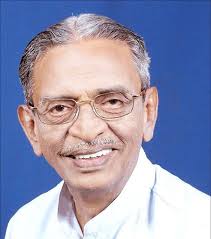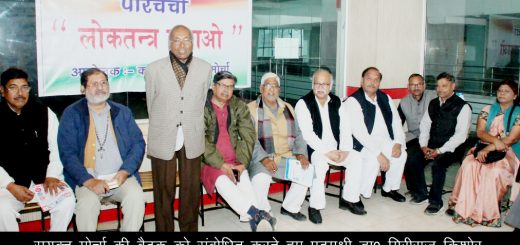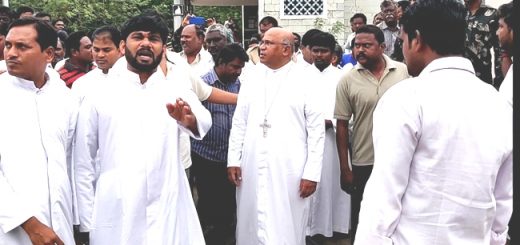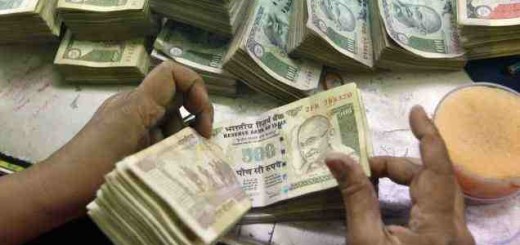Greatness of India: what? Assembly elections 2018: Hinduism triumphs over Hindutva
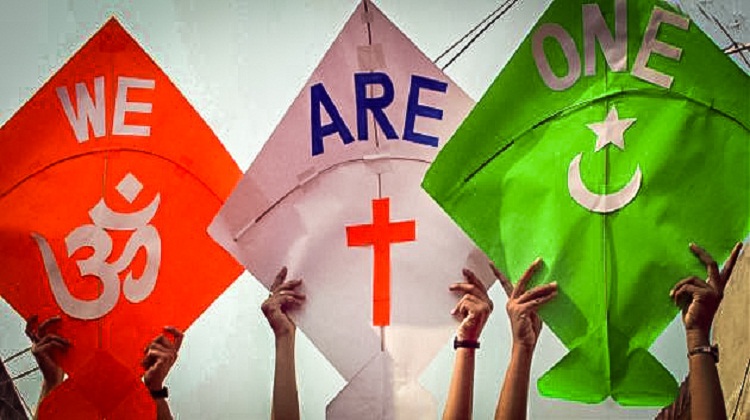
TJS George
in New Indian Express
16th December 2018
This column has said more than once that the greatness of India lies in its majority community voting not as Hindus, but as Indians.
Note: Yes the real greatness of India, is the fact of the people in this country, think of themselves, first as Indian, in spite of their belonging to a particular, creed, caste or region, as TJS George, the writer rightly says. That makes India a bouquet of colourful flowers, unity in diversity.
To go personal a bit, as a child I thought of myself first as a Christian, which could not satisfy me; then I thought of myself as a Keralite, which also could not satisfy me; I wanted to be more, then I thought of myself to be an Indian; but even that could not satisfy my heart’s yearning; then I thought of myself to be a WORLD CITIZEN, where I am settled for my heart’s content. And by sheer accident, or better, by providential remote controlling, definitely not due to any of my smartness or planning, I had the God-given opportunity to be all over the world.
Unity and universality
That drives me to the conviction that human nature, drives all of us, at least most of us, to grow into the fullness of universality and unity, knit together by the bonds of brotherhood and humane humanity. I think it is the characteristic trait of most of us Indians as a nation; Was not, “Loka Samasta Sukhino Bhavantu” the soul-cry of India and true Hinduism, even before Christianity?
We saw it best when Kerala was drowned by the recent floods. All rushed to help those most in need or danger, irrespective of their manifold differences which all readily forgot. All tried to become a friend in need.This I believe is the basic DNA of every one.
Power is Poison
That should make us all sit up and think, why some at least think and act differently and destructively, when it comes to chasing power in Politics. That drags to my mind the saying: “Power is poison” said by none other than Rahul Gandhi himself, when he was elevated to a post long time ago. Let that thought and conviction prevent him going crazy for POWER in politics, which has of become the biggest threat to Indian Politics.
Power humbles some, others, the small minds, it makes arrogant. Thank God it has made Rahul humble — think of his ‘Hugging Modi’ with a smile and contrast it with the body language, facial expression on Modi-Amit Shah face when speak of a “Congress-mukt” Bharat.
Hatred Mukt Bharat
You reap what you sow, some are already speaking of a “Modi-Mukt” Bharat. Agree and disagree, we all must and daily, but always in an agreeable way, an art not easy to come by. What all should strive after is Hatred and violence-mukt Bharat. For the rest read TJS George, who provides plenty of food for thought on Hindutva’s politics of polarization. james kottoor, editor ccv.
Read below TJS George’s article in
New Indian Express

This column has said more than once that the greatness of India lies in its majority community voting not as Hindus, but as Indians. By far the most dramatic—and comforting—confirmation of this has been provided by the latest election results.
The drama is contained in basic population figures. Rajasthan, Madhya Pradesh and Chhattisgarh constitute the heartland of Hindu India. In Rajasthan, 89 per cent of the population is Hindu, in Madhya Pradesh, 90 per cent, and in Chhattisgarh, 93 per cent. By contrast, only 80 per cent of the people are Hindu in Uttar Pradesh, and only 83 per cent in Bihar. Which means that it is the states with the largest number of Hindus that have rejected the BJP.
Remember that the BJP had raised its Hindutva pitch as electioneering progressed. The VHP added its bit by holding a massive rally in Delhi demanding a Ram Mandir in Ayodhya right away. Simple, ordinary voters exercised their franchise to show their disapproval of this communal approach to politics. Their action strengthened India as well as Hinduism. Hindutva’s politics of polarisation stood exposed.
The results shocked the party that had come to consider its triple strengths as invincible—the brilliance of the prime minister’s oratory, the win-anyhow philosophy of the party president, and the Machiavellian genius of the establishment’s legal pundit cum finance minister. Each of them is unmatched in his field. But all of them shared a fatal weakness—overconfidence that led them to believe they were always right.
They were often wrong. The prime minister was wrong in constantly denigrating Jawaharlal Nehru. The first prime minister of the country did make mistakes, but all the statue-building and oratory of the BJP cannot dent Nehru’s historical importance as an architect of modern India. Party boss Amit Shah stooped lower still with his contempt for the snakes and mongooses, the dogs and the cats that teamed up against his party. Now that the snakes et al have been approved by the people, will the party chief concede that in the eyes of the citizens of this country, including the majority of Hindus, he is nothing more than an overrated manipulator?
Arun Jaitley is the brainiest of them all and therefore the damage he does goes deepest. He is the only BJP leader to whom Narendra Modi feels obligated. And for good reason. It was Jaitley who first proposed Modi for the chief ministership of Gujarat. It was Jaitley who defended him when Prime Minister Vajpayee himself was inclined to “punish” Modi for the Gujarat riots. It was Jaitley who proposed Modi for prime ministership over the objections of seniors like Advani, Murli Manohar Joshi and Sushma Swaraj. It’s no surprise that Jaitley became the most powerful person in the Modi Government despite the fact that he could not win an election.
Every significant political move in the last four years carries the Jaitley stamp. It was he who thought up the Electoral Bonds, a devious way to channel funds anonymously to political parties. The Election Commission itself objected to it, but Jaitley didn’t care. His drive to bring the Reserve Bank under the government’s control has been relentless. Urjit Patel’s resignation was more shocking than Raghuram Rajan opting not to seek a second term because Patel had initially given the impression that he was pliant and obedient.
Evidently even he found the government’s demands unacceptable. These demands boil down to accessing the Reserve Bank’s assets for the government’s politically-motivated spending schemes. No other finance minister had taken liberties with the RBI’s autonomy and assets. What Jaitley proved in the process was that he had no qualms about distorting even the foundational principles of the country’s economic structure for political purposes.
Major policy initiatives of the last four years reflect the same authoritarian approach: Demonetisation that wrecked the lives of citizens in unprecedented ways, the Goods and Services Tax that complicated the system instead of simplifying it, inaction on bad loans by banks that benefited party cronies. Arun Jaitley welcomed occasions to dwell on these issues, more than any other party leader. The frequency of his television interviews is an example.
On all those occasions he justified every self-centred anti-people move with an air of grandeur that suggested that people who disagreed with him were mentally retarded.
Those people have now told the BJP that communal passions have no place in politics. Will the BJP pay heed, or will it turn vengeful?
Power in Delhi is in its hands for another quarter. Power is a hydra-headed beast and a quarter year is a long time. Momentous days are upon us.

